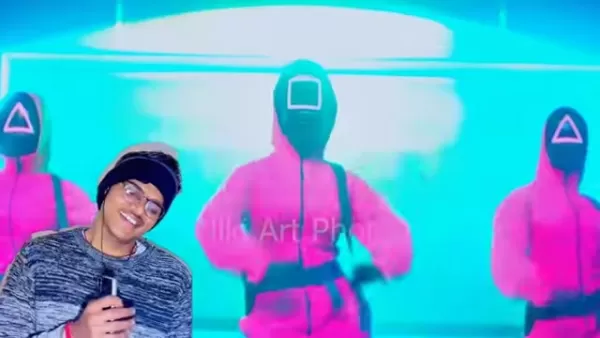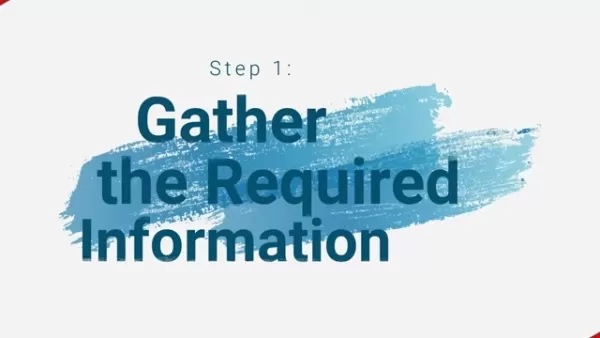AI-Ruined Squid Game 2: Funny Memes Spark Ethical Debates
The internet is buzzing with AI-generated content, and one of the most intriguing trends is the 'AI-ruined Squid Game 2' meme. These videos, where AI reimagines scenes from the beloved series, often result in hilarious and bizarre outcomes. While they're a source of entertainment, they also raise important ethical questions about the use and potential misuse of AI. This article explores this phenomenon, highlighting its humorous side as well as the serious implications of AI-generated media.
The Rise of AI-Generated Memes: Squid Game 2 Edition
What is the 'AI-Ruined Squid Game 2' Meme?
The 'AI-ruined Squid Game 2' meme is a trend where enthusiasts use AI tools to creatively alter scenes from the hit Netflix series, Squid Game. These modifications often lead to comical, absurd, or even disturbing scenarios that stray far from the original content. The trend has caught on like wildfire on platforms such as YouTube, TikTok, and Twitter, where users share and react to these AI-generated creations. The allure comes from the unexpected and often nonsensical twists that AI adds to familiar scenes and characters.

These memes range from simple visual tweaks, like changing characters' faces or outfits, to more complex narrative shifts, such as altering dialogue or adding entirely new scenes. The ease with which AI tools allow for video manipulation has led to a flood of these memes online. However, this accessibility also prompts critical questions about potential misuse and the ethical considerations of altering media. The blend of popular culture and advanced technology creates a unique and thought-provoking form of online humor.
Examples of Viral AI-Ruined Squid Game 2 Memes
Several of these memes have gone viral, capturing the attention of millions. One popular meme shows characters in unexpected romantic scenarios, which can be humorous but also problematic. The use of AI to create such content raises concerns about representation and the risk of reinforcing harmful stereotypes.

Another common theme is the introduction of bizarre or out-of-context elements into the Squid Game universe. For example, some memes feature characters from other franchises, change the game rules, or add surreal visual effects. These memes often rely on shock value and absurdity to generate humor, playing on viewers' expectations and subverting their understanding of the original series.
Of course, some find these remixes to be a light-hearted take on the series. AI isn't always seen as a negative force; it can also be a source of creative liberty, allowing for funny skits and spin-offs that add a new layer of enjoyment.
The Ethical Tightrope: Humor vs. Misuse
The Dark Side of AI-Generated Content
While these memes can be entertaining, they also highlight the potential for AI to be used maliciously. AI-generated 'deepfakes' and manipulated media could spread misinformation, damage reputations, or even incite violence.

The ease with which AI can alter video content makes it increasingly difficult to differentiate between reality and fabrication. This raises concerns about the potential for nefarious uses of AI. The creator of these videos addresses these issues, warning about the possibility of AI taking over and diminishing the creative integrity of the original storyline. This not only sounds alarming but also underscores the real-world implications of such technology. After all, AI is just computer code programmed by humans, meaning its effectiveness depends on the input it receives.
The videos also touch on the impact on younger audiences. While not directly mentioning children, the concern is implied, emphasizing the need for awareness about the dangerous potential of AI if left unchecked.
Navigating the Ethical Implications: A Call for Responsible Creation and Consumption
Given the potential for misuse, it's essential to approach AI-generated content critically. We must be aware of the power of these tools and their potential to deceive or manipulate. Before sharing or creating AI-generated media, we should consider the implications to avoid contributing to the spread of misinformation or harmful content.

This is relevant across various areas:
- Legal: Many are exploring the positive applications of AI tools, such as creating more realistic and new content.
- Grey Area: These applications are legal but often tread a fine line between good and bad. In the entertainment industry, AI can create convincing video content, which, if not labeled properly, can be misleading.
- Illegal: Some content created with AI is clearly immoral and wrong, as it's easily accessible and can be used to manipulate or harm individuals.
A Parody of the Popular Korean Series
Whether it's swapping cast members, adding sexual innuendos, or inserting awkward scenes, these memes turn the series into something utterly ridiculous. Some may view it as lighthearted fun, while others see it as an opportunity to reflect on AI's real-world applications. It all depends on how the information is used and what one aims to achieve with it.

Some scenes touch on controversial ideas, like sexualized characters or lewd hand gestures, making the content even more over-the-top. While some might find it excessive, it's undeniably a parody of the original Squid Game.
How to Approach AI Spin-offs?
How can I better approach new material that relies on AI and spin-offs?
To use this content responsibly, consider these ethical questions:
- Original: How do you maintain the integrity of the original series?
- Legality: Are you using this information legally?
- Humor: Is what you're sharing genuinely funny and harmless?
- Innocent: Can you ensure that the content won't have a harmful impact?
Weighing the AI Effect: Analyzing the Pros and Cons
Pros
- AI can boost creativity by offering new tools and possibilities for content creation.
- AI can automate tedious tasks, allowing creators to focus on more creative aspects.
- AI can tailor content to individual preferences, enhancing user engagement.
- AI can help preserve and restore old or damaged media.
Cons
- AI-generated content raises ethical concerns about authenticity and originality.
- AI can be used to spread misinformation and create convincing deepfakes.
- AI algorithms can perpetuate biases and stereotypes.
- Over-reliance on AI could diminish human creativity and critical thinking.
- An oversaturation of AI content could devalue human creativity and skill.
FAQ
What makes the 'AI-Ruined Squid Game 2' meme funny?
The humor comes from the unexpected and absurd twists that AI introduces to familiar scenes, subverting viewers' expectations and creating comical scenarios.
What are the ethical concerns surrounding these memes?
The main concerns are the potential for AI to be used maliciously, including spreading misinformation, damaging reputations, and manipulating public opinion. The key ethical issue is the manipulation of media.
Can AI be used to damage the reputation of the original Squid Game?
Squid Game is an established series with a massive following. However, AI could potentially rebrand or make the series more controversial or popular.
Should I be concerned with children and how this impacts them?
It's advisable to keep content with mature themes or references away from children, as it may confuse them.
Related Questions
How is AI changing entertainment?
AI is revolutionizing the entertainment industry by enabling new forms of content creation, personalization, and audience engagement. From generating realistic visual effects to composing music and writing scripts, AI tools are empowering creators to push the boundaries of storytelling and artistic expression. AI-powered recommendation systems are also transforming how audiences discover and consume content, delivering personalized experiences tailored to individual preferences. As AI technology evolves, it will likely play an increasingly central role in shaping the future of entertainment, driving innovation and transforming our interaction with media.
Deepfakes, while popular, can raise ethical concerns, as previously mentioned. An area of growing interest is the use of AI in virtual and augmented reality experiences. AI algorithms can analyze user behavior and adapt the virtual environment in real-time, creating dynamic and immersive experiences. In gaming, AI is used to create more intelligent and responsive non-player characters (NPCs), enhancing the overall gameplay experience. Moreover, AI-driven tools are helping to streamline content production workflows, automating tasks such as video editing, sound design, and animation. These advancements are not only increasing efficiency but also opening up new creative possibilities for filmmakers, musicians, and game developers. The integration of AI into the entertainment industry is poised to unlock exciting new opportunities for creativity, innovation, and audience engagement.
Related article
 Topaz DeNoise AI: Best Noise Reduction Tool in 2025 – Full Guide
In the competitive world of digital photography, image clarity remains paramount. Photographers at all skill levels contend with digital noise that compromises otherwise excellent shots. Topaz DeNoise AI emerges as a cutting-edge solution, harnessing
Topaz DeNoise AI: Best Noise Reduction Tool in 2025 – Full Guide
In the competitive world of digital photography, image clarity remains paramount. Photographers at all skill levels contend with digital noise that compromises otherwise excellent shots. Topaz DeNoise AI emerges as a cutting-edge solution, harnessing
 Master Emerald Kaizo Nuzlocke: Ultimate Survival & Strategy Guide
Emerald Kaizo stands as one of the most formidable Pokémon ROM hacks ever conceived. While attempting a Nuzlocke run exponentially increases the challenge, victory remains achievable through meticulous planning and strategic execution. This definitiv
Master Emerald Kaizo Nuzlocke: Ultimate Survival & Strategy Guide
Emerald Kaizo stands as one of the most formidable Pokémon ROM hacks ever conceived. While attempting a Nuzlocke run exponentially increases the challenge, victory remains achievable through meticulous planning and strategic execution. This definitiv
 AI-Powered Cover Letters: Expert Guide for Journal Submissions
In today's competitive academic publishing environment, crafting an effective cover letter can make the crucial difference in your manuscript's acceptance. Discover how AI-powered tools like ChatGPT can streamline this essential task, helping you cre
Comments (6)
0/200
AI-Powered Cover Letters: Expert Guide for Journal Submissions
In today's competitive academic publishing environment, crafting an effective cover letter can make the crucial difference in your manuscript's acceptance. Discover how AI-powered tools like ChatGPT can streamline this essential task, helping you cre
Comments (6)
0/200
![DavidLewis]() DavidLewis
DavidLewis
 July 22, 2025 at 2:33:07 AM EDT
July 22, 2025 at 2:33:07 AM EDT
These AI-ruined Squid Game 2 memes are pure chaos! 😆 I can’t stop laughing at how the AI turned serious scenes into total absurdity. But honestly, it’s a bit creepy thinking about how AI can just mess with our favorite shows like that. Anyone else worried about where this tech is heading?


 0
0
![RogerJackson]() RogerJackson
RogerJackson
 May 6, 2025 at 6:51:57 PM EDT
May 6, 2025 at 6:51:57 PM EDT
이 AI로 만든 '스퀴드 게임 2' 동영상 진짜 웃겨... 근데 이건 진짜 창의성인가요? 이상한데 재미있네요. 계속 보게 돼요ㅋㅋㅋ


 0
0
![EmmaJohnson]() EmmaJohnson
EmmaJohnson
 May 6, 2025 at 4:43:08 PM EDT
May 6, 2025 at 4:43:08 PM EDT
AIが作る「Squid Game 2」の変な動画が面白い!でも、これって本当に良いこと?AIがクリエイティビティを奪っている気がして複雑…でも、ついつい見ちゃうよね!面白すぎて止まらない!🤣


 0
0
![BruceSmith]() BruceSmith
BruceSmith
 May 6, 2025 at 4:40:38 PM EDT
May 6, 2025 at 4:40:38 PM EDT
¡Estos videos de AI arruinando Squid Game 2 son una locura! Divertidos, pero también un poco espeluznantes. No puedo dejar de verlos, jaja 🤣🤣


 0
0
![PeterMartinez]() PeterMartinez
PeterMartinez
 May 6, 2025 at 10:45:54 AM EDT
May 6, 2025 at 10:45:54 AM EDT
Essas paródias do AI ruined Squid Game 2 são hilárias, mas ao mesmo tempo assustadoras. O que isso diz sobre nós? Ainda assim, estou viciado! 😂😅


 0
0
![WalterNelson]() WalterNelson
WalterNelson
 May 5, 2025 at 10:11:25 AM EDT
May 5, 2025 at 10:11:25 AM EDT
This AI ruined Squid Game 2 meme trend is wild! It’s funny how these AI videos mess up classic scenes, but at the same time, it’s kinda creepy. I mean, what does this say about creativity? Still, can’t stop watching, lol 😂😂😂


 0
0
The internet is buzzing with AI-generated content, and one of the most intriguing trends is the 'AI-ruined Squid Game 2' meme. These videos, where AI reimagines scenes from the beloved series, often result in hilarious and bizarre outcomes. While they're a source of entertainment, they also raise important ethical questions about the use and potential misuse of AI. This article explores this phenomenon, highlighting its humorous side as well as the serious implications of AI-generated media.
The Rise of AI-Generated Memes: Squid Game 2 Edition
What is the 'AI-Ruined Squid Game 2' Meme?
The 'AI-ruined Squid Game 2' meme is a trend where enthusiasts use AI tools to creatively alter scenes from the hit Netflix series, Squid Game. These modifications often lead to comical, absurd, or even disturbing scenarios that stray far from the original content. The trend has caught on like wildfire on platforms such as YouTube, TikTok, and Twitter, where users share and react to these AI-generated creations. The allure comes from the unexpected and often nonsensical twists that AI adds to familiar scenes and characters.

These memes range from simple visual tweaks, like changing characters' faces or outfits, to more complex narrative shifts, such as altering dialogue or adding entirely new scenes. The ease with which AI tools allow for video manipulation has led to a flood of these memes online. However, this accessibility also prompts critical questions about potential misuse and the ethical considerations of altering media. The blend of popular culture and advanced technology creates a unique and thought-provoking form of online humor.
Examples of Viral AI-Ruined Squid Game 2 Memes
Several of these memes have gone viral, capturing the attention of millions. One popular meme shows characters in unexpected romantic scenarios, which can be humorous but also problematic. The use of AI to create such content raises concerns about representation and the risk of reinforcing harmful stereotypes.

Another common theme is the introduction of bizarre or out-of-context elements into the Squid Game universe. For example, some memes feature characters from other franchises, change the game rules, or add surreal visual effects. These memes often rely on shock value and absurdity to generate humor, playing on viewers' expectations and subverting their understanding of the original series.
Of course, some find these remixes to be a light-hearted take on the series. AI isn't always seen as a negative force; it can also be a source of creative liberty, allowing for funny skits and spin-offs that add a new layer of enjoyment.
The Ethical Tightrope: Humor vs. Misuse
The Dark Side of AI-Generated Content
While these memes can be entertaining, they also highlight the potential for AI to be used maliciously. AI-generated 'deepfakes' and manipulated media could spread misinformation, damage reputations, or even incite violence.

The ease with which AI can alter video content makes it increasingly difficult to differentiate between reality and fabrication. This raises concerns about the potential for nefarious uses of AI. The creator of these videos addresses these issues, warning about the possibility of AI taking over and diminishing the creative integrity of the original storyline. This not only sounds alarming but also underscores the real-world implications of such technology. After all, AI is just computer code programmed by humans, meaning its effectiveness depends on the input it receives.
The videos also touch on the impact on younger audiences. While not directly mentioning children, the concern is implied, emphasizing the need for awareness about the dangerous potential of AI if left unchecked.
Navigating the Ethical Implications: A Call for Responsible Creation and Consumption
Given the potential for misuse, it's essential to approach AI-generated content critically. We must be aware of the power of these tools and their potential to deceive or manipulate. Before sharing or creating AI-generated media, we should consider the implications to avoid contributing to the spread of misinformation or harmful content.

This is relevant across various areas:
- Legal: Many are exploring the positive applications of AI tools, such as creating more realistic and new content.
- Grey Area: These applications are legal but often tread a fine line between good and bad. In the entertainment industry, AI can create convincing video content, which, if not labeled properly, can be misleading.
- Illegal: Some content created with AI is clearly immoral and wrong, as it's easily accessible and can be used to manipulate or harm individuals.
A Parody of the Popular Korean Series
Whether it's swapping cast members, adding sexual innuendos, or inserting awkward scenes, these memes turn the series into something utterly ridiculous. Some may view it as lighthearted fun, while others see it as an opportunity to reflect on AI's real-world applications. It all depends on how the information is used and what one aims to achieve with it.

Some scenes touch on controversial ideas, like sexualized characters or lewd hand gestures, making the content even more over-the-top. While some might find it excessive, it's undeniably a parody of the original Squid Game.
How to Approach AI Spin-offs?
How can I better approach new material that relies on AI and spin-offs?
To use this content responsibly, consider these ethical questions:
- Original: How do you maintain the integrity of the original series?
- Legality: Are you using this information legally?
- Humor: Is what you're sharing genuinely funny and harmless?
- Innocent: Can you ensure that the content won't have a harmful impact?
Weighing the AI Effect: Analyzing the Pros and Cons
Pros
- AI can boost creativity by offering new tools and possibilities for content creation.
- AI can automate tedious tasks, allowing creators to focus on more creative aspects.
- AI can tailor content to individual preferences, enhancing user engagement.
- AI can help preserve and restore old or damaged media.
Cons
- AI-generated content raises ethical concerns about authenticity and originality.
- AI can be used to spread misinformation and create convincing deepfakes.
- AI algorithms can perpetuate biases and stereotypes.
- Over-reliance on AI could diminish human creativity and critical thinking.
- An oversaturation of AI content could devalue human creativity and skill.
FAQ
What makes the 'AI-Ruined Squid Game 2' meme funny?
The humor comes from the unexpected and absurd twists that AI introduces to familiar scenes, subverting viewers' expectations and creating comical scenarios.
What are the ethical concerns surrounding these memes?
The main concerns are the potential for AI to be used maliciously, including spreading misinformation, damaging reputations, and manipulating public opinion. The key ethical issue is the manipulation of media.
Can AI be used to damage the reputation of the original Squid Game?
Squid Game is an established series with a massive following. However, AI could potentially rebrand or make the series more controversial or popular.
Should I be concerned with children and how this impacts them?
It's advisable to keep content with mature themes or references away from children, as it may confuse them.
Related Questions
How is AI changing entertainment?
AI is revolutionizing the entertainment industry by enabling new forms of content creation, personalization, and audience engagement. From generating realistic visual effects to composing music and writing scripts, AI tools are empowering creators to push the boundaries of storytelling and artistic expression. AI-powered recommendation systems are also transforming how audiences discover and consume content, delivering personalized experiences tailored to individual preferences. As AI technology evolves, it will likely play an increasingly central role in shaping the future of entertainment, driving innovation and transforming our interaction with media.
Deepfakes, while popular, can raise ethical concerns, as previously mentioned. An area of growing interest is the use of AI in virtual and augmented reality experiences. AI algorithms can analyze user behavior and adapt the virtual environment in real-time, creating dynamic and immersive experiences. In gaming, AI is used to create more intelligent and responsive non-player characters (NPCs), enhancing the overall gameplay experience. Moreover, AI-driven tools are helping to streamline content production workflows, automating tasks such as video editing, sound design, and animation. These advancements are not only increasing efficiency but also opening up new creative possibilities for filmmakers, musicians, and game developers. The integration of AI into the entertainment industry is poised to unlock exciting new opportunities for creativity, innovation, and audience engagement.
 Topaz DeNoise AI: Best Noise Reduction Tool in 2025 – Full Guide
In the competitive world of digital photography, image clarity remains paramount. Photographers at all skill levels contend with digital noise that compromises otherwise excellent shots. Topaz DeNoise AI emerges as a cutting-edge solution, harnessing
Topaz DeNoise AI: Best Noise Reduction Tool in 2025 – Full Guide
In the competitive world of digital photography, image clarity remains paramount. Photographers at all skill levels contend with digital noise that compromises otherwise excellent shots. Topaz DeNoise AI emerges as a cutting-edge solution, harnessing
 Master Emerald Kaizo Nuzlocke: Ultimate Survival & Strategy Guide
Emerald Kaizo stands as one of the most formidable Pokémon ROM hacks ever conceived. While attempting a Nuzlocke run exponentially increases the challenge, victory remains achievable through meticulous planning and strategic execution. This definitiv
Master Emerald Kaizo Nuzlocke: Ultimate Survival & Strategy Guide
Emerald Kaizo stands as one of the most formidable Pokémon ROM hacks ever conceived. While attempting a Nuzlocke run exponentially increases the challenge, victory remains achievable through meticulous planning and strategic execution. This definitiv
 AI-Powered Cover Letters: Expert Guide for Journal Submissions
In today's competitive academic publishing environment, crafting an effective cover letter can make the crucial difference in your manuscript's acceptance. Discover how AI-powered tools like ChatGPT can streamline this essential task, helping you cre
AI-Powered Cover Letters: Expert Guide for Journal Submissions
In today's competitive academic publishing environment, crafting an effective cover letter can make the crucial difference in your manuscript's acceptance. Discover how AI-powered tools like ChatGPT can streamline this essential task, helping you cre
 July 22, 2025 at 2:33:07 AM EDT
July 22, 2025 at 2:33:07 AM EDT
These AI-ruined Squid Game 2 memes are pure chaos! 😆 I can’t stop laughing at how the AI turned serious scenes into total absurdity. But honestly, it’s a bit creepy thinking about how AI can just mess with our favorite shows like that. Anyone else worried about where this tech is heading?


 0
0
 May 6, 2025 at 6:51:57 PM EDT
May 6, 2025 at 6:51:57 PM EDT
이 AI로 만든 '스퀴드 게임 2' 동영상 진짜 웃겨... 근데 이건 진짜 창의성인가요? 이상한데 재미있네요. 계속 보게 돼요ㅋㅋㅋ


 0
0
 May 6, 2025 at 4:43:08 PM EDT
May 6, 2025 at 4:43:08 PM EDT
AIが作る「Squid Game 2」の変な動画が面白い!でも、これって本当に良いこと?AIがクリエイティビティを奪っている気がして複雑…でも、ついつい見ちゃうよね!面白すぎて止まらない!🤣


 0
0
 May 6, 2025 at 4:40:38 PM EDT
May 6, 2025 at 4:40:38 PM EDT
¡Estos videos de AI arruinando Squid Game 2 son una locura! Divertidos, pero también un poco espeluznantes. No puedo dejar de verlos, jaja 🤣🤣


 0
0
 May 6, 2025 at 10:45:54 AM EDT
May 6, 2025 at 10:45:54 AM EDT
Essas paródias do AI ruined Squid Game 2 são hilárias, mas ao mesmo tempo assustadoras. O que isso diz sobre nós? Ainda assim, estou viciado! 😂😅


 0
0
 May 5, 2025 at 10:11:25 AM EDT
May 5, 2025 at 10:11:25 AM EDT
This AI ruined Squid Game 2 meme trend is wild! It’s funny how these AI videos mess up classic scenes, but at the same time, it’s kinda creepy. I mean, what does this say about creativity? Still, can’t stop watching, lol 😂😂😂


 0
0





























